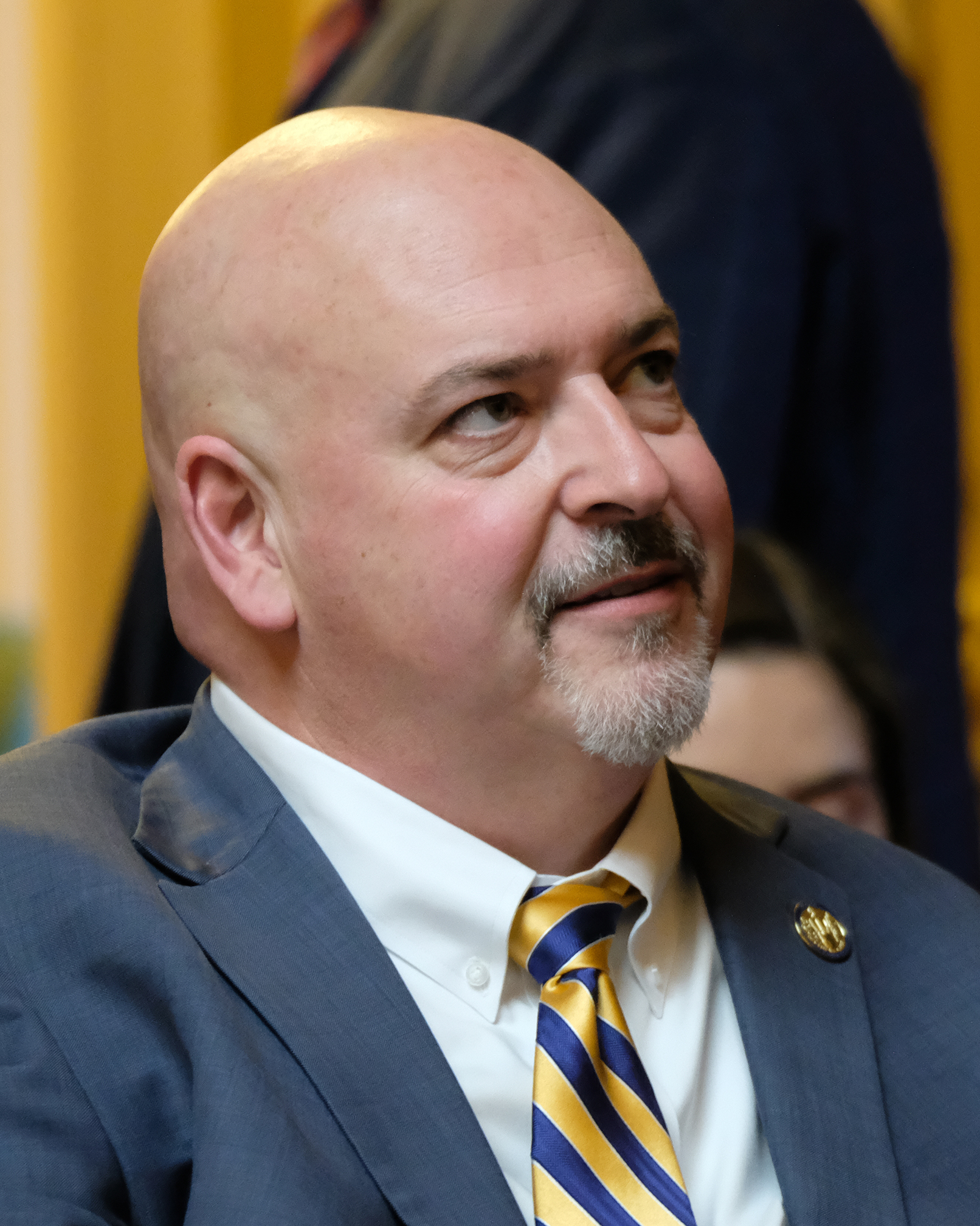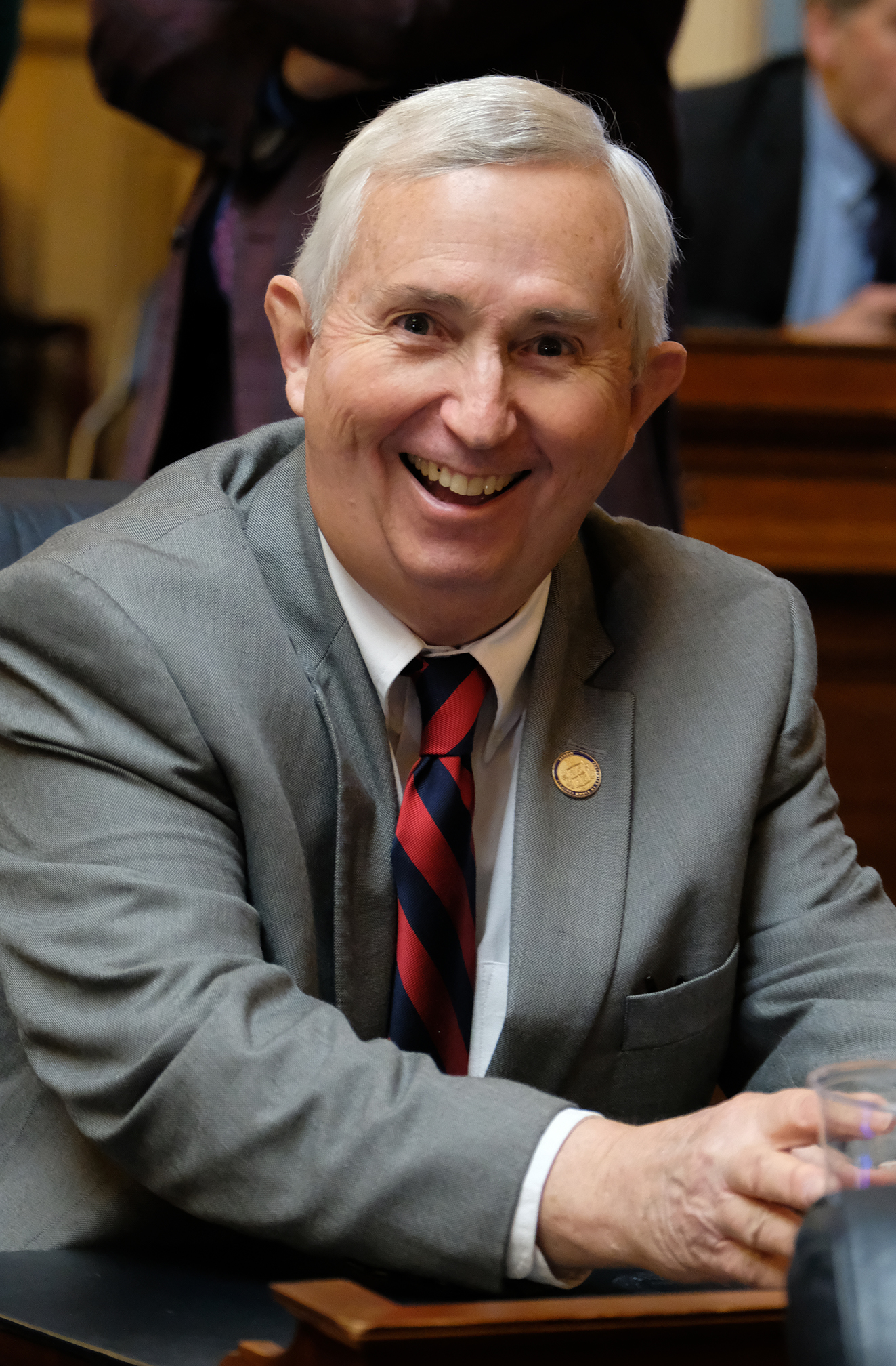Lynchburg has long been known for being home to some of the best live theater in Virginia.
That will only get better when the Appomattox-based Wolfbane Productions opens its new venue in the Hill City.
For the past year, however, the best drama in the Hill City has been provided, inadvertently, by Lynchburg Republicans. First there’s been the infighting between two rival Republican factions on the city council that at one point involved one Republican council member (Jeff Helgeson) muttering that the Republican Mayor (Stephanie Reed) was “the stupidest person on earth I have ever seen” and eventually led to a majority of the Republican council members voting to censure a fellow Republican council member (Marty Misjuns) for “disorderly behavior and misconduct.”
Then there’s been Republican infighting off the council as well. First the party’s executive committee censured Republican Vice Mayor Chris Faraldi for a “failure to meet the expectations of conduct,” which mostly seemed to be sparring with Misjuns. A larger body of Republicans rescinded that censure. More recently, Misjuns has waged a social media war against Faraldi, who is up for reelection this year, with Misjuns vowing that “2024 is going to be a great year to remove incompetent fraudsters at the ballot box.” The odd thing is that the policy differences between the two factions seem relatively small; this seems largely a personality conflict — or, perhaps, a larger conflict over what type of Republicans will define the Republican Party, with Misjuns representing a more combative, harder-right faction focused on social issues.

Now we have more drama in Lynchburg, this time with two unexpected actors: Attorney General Jason Miyares and House Minority Leader Todd Gilbert, R-Shenandoah County. The plot twist here is Miyares weighing in on the question of whether Lynchburg Republicans are using a legal method by which to nominate their candidates for the city council — or, more accurately, just one candidate, because the only contested race in the Hill City is in the Ward IV seat that Faraldi holds, and that Misjuns would like to see held by somebody else.
Last month, Lynchburg Republicans voted — with only Faraldi opposed — to hold a “firehouse primary” as the means by which the party will nominate its 2024 candidates for the council.
For those who don’t follow politics obsessively, that may mean nothing, but this decision is actually quite significant. Here’s why: In the past there have been multiple ways by which a party can nominate candidates. It could opt for a state-run primary. Or it could choose from several party-run processes, one of which is colloquially known as a “firehouse primary” in that it looks much like a “real” primary but isn’t.
A state-run primary is just like your regular November election — at the regular polling places on a particular Tuesday, at the standard 6 a.m. to 7 p.m. voting times, and, now, with the addition of a long early voting period. (Voting in the March 5 presidential primary in Virginia has been underway since last month).
In a firehouse primary, the party is in charge of the process. The voting hours are different, the polling places are different, everything is different.
Virginia, being a state that has never valued public participation as much as other states, has never been particularly keen on primaries. (For historical context, see V.O. Key’s classic 1949 treatise “Southern Politics in State and Nation,” which said “by comparison to Virginia, Mississippi is a hotbed of democracy.”) When the Byrd Machine ran the Democratic Party, there were primaries, but the electorate was deliberately kept small. Even after Democrats threw off the Byrd Machine, the party vacillated between primaries and conventions as a preferred method to nominate candidates. It wasn’t until 2001 that the party consistently began holding primaries.
Republicans have been more reluctant to embrace primaries. In all of Virginia history, Republicans have held just four primaries for governor — and one of them, in 1949, was unopposed. Some conservative activists have preferred conventions over primaries because they feel they have more influence then. Others have preferred conventions because they worry about non-Republicans voting in primaries — Virginia doesn’t register voters by party so there’s no such thing as a “registered Republican” or a “registered Democrat.”
That was then, this is now. Virginia now has a new law, pushed by Del. Dan Helmer, D-Fairfax County, that doesn’t explicitly require parties to hold primaries, but makes it all but impossible for them to do anything else. The new law requires any nominating method to make provisions for absentee voters, something that conventions, by their nature, can’t do and firehouse primaries have never done.
That law took effect Jan. 1. Before the month was out, Lynchburg Republicans decided to test the limits of that law. They voted to hold a firehouse primary. They also did so without setting a date, or working out the details for how to handle absentee ballots. Officially, Lynchburg Republicans favored a firehouse primary because that was the only way they could guarantee that non-Republicans wouldn’t participate — and they’re not wrong. However, this was also seen as a way to limit the electorate and make it easier for a challenger (since revealed to be Peter Alexander) to defeat Faraldi. The theory there is that Faraldi would fare better in the broader electorate of an actual primary than in the confined space of a party-run firehouse primary.
Whatever the politics, there’s still the matter of the law: Can Lynchburg Republicans hold a firehouse primary and still comply with the new law? On Friday, Attorney General Jason Miyares seemed to say “no.” We now have more drama in Lynchburg.

It turns out that while Lynchburg Republicans were preparing for their next set-to, Republicans in Richmond were taking matters into their own hands. Helmer had originally asked for an attorney general’s opinion regarding the Lynchburg firehouse primary. That was known. What wasn’t known until now was that Del. Wendell Walker, R-Lynchburg, asked Gilbert to file his own request for an attorney general’s opinion. For purposes of internal Republican politics, it looks more acceptable if the Republican House leader asked for the opinion rather than some Democrat from Northern Virginia.
Miyares’ opinion doesn’t explicitly say “yes, you must have a primary,” but that sure seems to be how to read it. (And I’ve had Republicans not connected with Lynchburg concur in that interpretation.) “A political party may not select a nomination method that de facto requires covered voters to be physically present to participate or that otherwise has the practical effect of excluding their participation,” Miyares wrote.
Is there some daylight between that and an outright “no, you can’t hold a firehouse primary”? Maybe — I’m not a lawyer — but as a practical matter it seems difficult to find a way to make a firehouse primary comply with the law, especially when you have this opinion from a Republican attorney general standing in the way. Just in case there is any doubt, the Republican Party of Virginia’s general counsel, Chris Marston, sent all unit chairs an email Friday afternoon giving more explicit advice: “The bottom line is that a state-run primary is the only way the Party can nominate candidates for public office. All chairs who have nominating contests this year should advise the Department [of Elections] that they will use a primary by the March 5 deadline.”
The timing hardly seems coincidental: The opinion was released just days before the Tuesday meeting where Lynchburg Republicans had been set to work out the details of that firehouse primary. What will they do now? Will they say “tough, we can make this work”? Or will they throw up their hands and say “oh, guess we’ll have to have a primary, after all”? Here’s the risk of forging ahead, attorney general’s opinion be damned: Lynchburg Republicans run the risk of legal action — and some judge ruling that they didn’t follow the law and they don’t have a nominee on the ballot, after all. If they hold a primary, it would be June 18, the same day as that 5th District Republicans will already be holding a primary to choose between Rep. Bob Good and challenger John McGuire.
This isn’t just a matter of interest in Lynchburg; it’s a matter with statewide implications. Does the new law offer any room for maneuver or, as a practical matter, must parties always hold a primary? Thanks to intraparty fighting in Lynchburg, we’re about to find out. Or maybe we already have.



